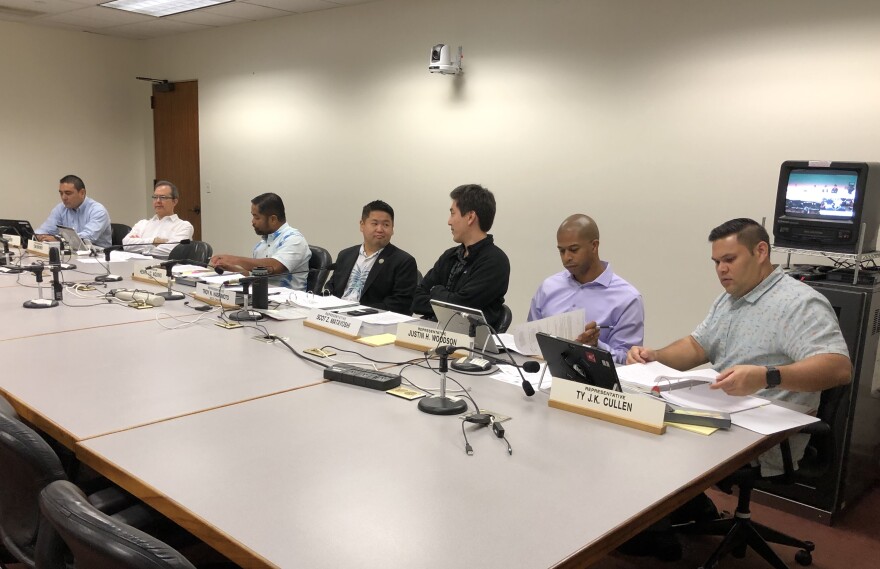All House and Senate Bills with multiple committee referrals must reach their final committee by Friday. This is a “do or die deadline” for some bills.

The House Committee on Transportation passed House Bill 327 that would allow the use of O’ahu’s zipper lane for single occupant vehicles, for a price. State deputy director for highways, Ed Sniffen, says the DOT would charge an access fee and follow Federal Highways Administration rules.
“Federal law allows us to use it for tolling, if it’s enacted in legislature, provided that we have an electronic system that monitors and enforces. The electronic system, we believe, is about $20-to-$30 million to put in. We’re not sure yet. We’re still following up on the costs.”
Federal law also requires a state DOT impact study to ensure the expanded system is not degraded and that continued access is provided to high occupancy and electric vehicles and motorcycles. The cost of the fee has not been determined, but, Sniffen says, it could pay for other improvements
“If we extended that single lane portion back to two lanes from the H-1/H-2 merge, there’s two structures that we’d have to modify to add that 3-4 feet. We costed it about $60-ti-$80 million to modify. If this legislation moves forward and tolling is allowed, the additional funds that comes in would pay for the electronic system and, secondarily, it could pay for upgrades to the zipper, to extend the zipper lane further back.”

Another measure, House Bill 1215, would establish a tax credit for drivers who live within 10 miles of their workplace and offset state motor vehicle registration and inspection fees. Leeward O’ahu Representative, Stacelynn Eli, introduced the measure to encourage commuters to live closer to work. Her current drive from Nanakuli to the State Capitol takes an hour-and-a-half.
“Believe it or not, it’s actually faster for my colleagues from the neighbor islands to fly in to Honolulu and get to the Capitol, than it is for me to drive out to Honolulu to get here. So, it’s something that we deal with daily, so this is just me just trying to look for a small solution while still looking for the bigger solutions that we’re gonna need.”

The DOT supports the measure, but, estimates the savings for motorists to be about $50 dollars annually. For that reason, House Transportation Committee chair, Henry Aquino, deferred the bill and did not advance it.
“So, I think –you know -- if you wanna support getting people to work, live and play within a certain amount of distance, which would be good for traffic congestion and other things, so, I think it has great intention but I believe that we should take our time on this so we pass something that’s very meaningful that would truly benefit the taxpayers.”
For HPR News, I’m Wayne Yoshioka.




